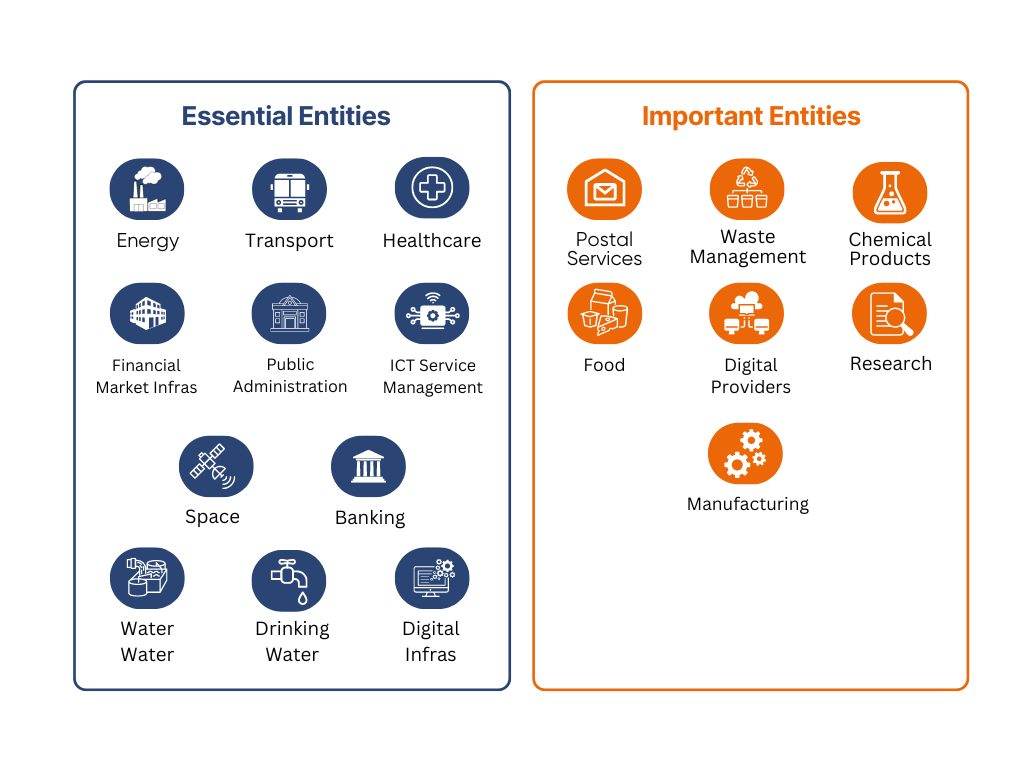NIS2: Obligations, Fines, and Costs for EU Organisations
In an increasingly digitised world, information security has become a primary concern for governments, businesses, and citizens alike. In response to this growing threat, the European Union has enacted Directive NIS2, establishing stricter obligations, significant fines, and additional costs for companies operating in the digital space. This directive redefines the cybersecurity landscape in Europe, placing unprecedented emphasis on the prevention and management of cyber incidents.
Challenges and Responsibilities under Directive NIS2
Directive NIS2 sets clear obligations for companies in terms of preventing and managing cyber incidents. An incident will be considered significant if it has caused or may cause serious operational disruptions or financial losses, or if it has affected or may affect other individuals or entities. This underscores the importance of companies being properly equipped with computer security incident response teams and competent authorities in networks and information systems.
Companies are responsible for notifying any critical incidents to the supervisory authority within 24 hours, with a detailed report within the following 72 hours. Additionally, a final report is required within a month. This rapid notification and response are crucial for mitigating the impact of cyberattacks and protecting both companies and citizens.
Implications and Penalties for Non-Compliance
Directive NIS2 also increases the responsibility of company management in the prevention and management of cyber incidents. Members of management can be held directly and personally responsible for security breaches, reflecting the importance of a cybersecurity culture from the top of the organisation.
Penalties for non-compliance with Directive NIS2 must be effective, proportionate, and deterrent. These can range from administrative fines to temporary bans for responsible directors. For companies considered as Important or Essential Entities, fines can amount to millions of euros or a significant percentage of their annual turnover.
The Real Cost for EU Businesses
Compliance with Directive NIS2 is non-negotiable and has significant financial implications for companies. According to the impact assessment associated with the directive, it is expected that companies will increase their spending on computer security by up to 22% in the first years following its implementation. This increase in operating costs is necessary to ensure adequate protection against growing cyber threats.
Although this increase in spending may seem substantial, it is expected to be offset by a significant reduction in costs associated with cybersecurity incidents. Furthermore, the ENISA Information Security Investment Report highlights a gap in cybersecurity spending between the European Union and the United States, suggesting that there is room for improvement in Europe’s security posture.
Understanding Company Investment in NIS2: Impacts and Outcomes
Despite the challenges and costs associated, the implementation of Directive NIS2 is bearing fruit. A study on NIS conducted on organisations from various EU Member States revealed that 82% of them experienced a positive impact on their cybersecurity as a result of the directive. This underscores the effectiveness of measures driven by European legislation to protect digital infrastructure and sensitive data.
In conclusion, Directive NIS2 establishes a robust framework for addressing growing cyber threats and protecting Europe’s digital infrastructure. Although it imposes additional obligations and costs on companies, these measures are essential for safeguarding security and trust in the European digital space. At the end of the day, investing in cybersecurity is not only a legal obligation but also a strategic necessity for all companies operating in today’s digital world.
It includes all public and private entities fundamental to the economy and society, as well as those with over 250 employees and an annual turnover exceeding €50 million. It also covers those with 50 to 250 employees and an annual turnover of at least €10 million.
There are exceptions to the size rule, such as providers of electronic communications networks or services, domain name registries or DNS service providers, and sole providers in a Member State of an essential service. Additionally, entities whose service disruption could have a significant impact on public safety, public security, or public health, as well as entities in the public administration, are considered within this category.
Risk Management and Security Measures
Directive NIS2 raises the bar regarding risk management and security measures that organizations must adopt within the European Union. This comprehensive approach not only seeks to protect individual organizations’ infrastructures but also to strengthen the resilience of European society and economy against cyber threats. Below are the key components of this approach:
- Minimum Set of Security Measures
- Risk Assessments and Information System Security Policies
- Security Procedures for Employees with Access to Sensitive or Important Data
- Use of Multi-Factor Authentication
- Incident Management for Prevention, Detection, and Response to Cyber Incidents
- Business Continuity and Crisis Management
- Testing and Auditing of Security Measures
- Supply Chain Security
- Cybersecurity Training
So, Is Your Company Bound by NIS2 Regulations?
Directive NIS2 represents a significant advancement in cybersecurity within the European Union, addressing growing challenges in an increasingly complex digital environment. With clear criteria and stricter requirements, this regulation not only strengthens the protection of critical infrastructures and essential organizations but also promotes a more robust and aware cybersecurity culture throughout the region. With the implementation deadline in October 2024, both Member States and affected entities must act promptly to adapt to these new regulations and ensure a safer digital environment for all. Have you already found out if your company falls within the scope of NIS2?



